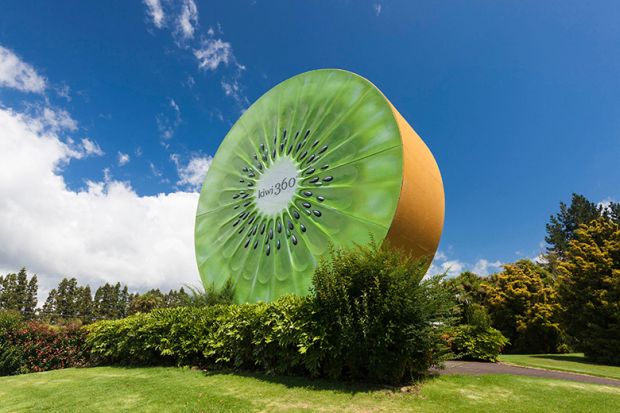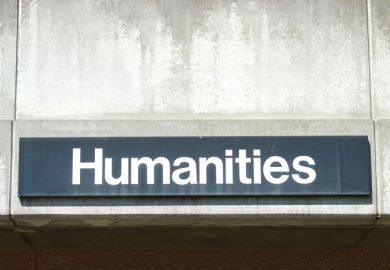Changes to New Zealand research funding rules are “disappointing and worrying” for humanities academics, deans said, as the social sciences become increasingly sidelined from grant schemes.
From 1 February, humanities and social science (Hass) research projects supported by Horizon Europe have lost eligibility for top-up funding from New Zealand’s Ministry of Business, Innovation and Employment (MBIE).
Horizon Europe adds 25 per cent to its research grants to cover overheads like laboratories, consumables and technicians’ pay. The MBIE top-up funding is designed to cover any shortfall with an additional 60 per cent allocation, capped at a little over NZ$1 million (£455,000).
The department said the exclusion of Hass would “better align” the top-up funding with the government’s priorities for the Catalyst Fund, which funnels about NZ$30 million a year into collaborative international research.
In early December, then science minister Judith Collins updated Catalyst’s operating rules to make it “laser focused” on “research delivering clear benefits”. She nominated the “clear growth areas of quantum technology, health, biotechnology, artificial intelligence, space and Antarctic research”.
The government has also banned Hass disciplines from its main scheme to support basic research, the Marsden Fund.
“It’s an existential threat for us, but also for the country,” said Bruce Cohen, president of the Sociological Association of Aotearoa New Zealand. “Funding inside as well as outside of the university system was already tight before it was taken from us with these announcements.”
Cohen said a 20-strong team of sociologists in his department a decade ago had been reduced to just nine. “Our postgraduate and post-doctorate researchers are seriously considering the viability of their future study and work prospects here.”
Heather Zwicker, president of the Australasian Council of Deans of Arts, Social Sciences and Humanities (Dassh), said Hass was “the proverbial canary in the coalmine” – as evidenced by the Trump administration’s blocking of research grants through the National Institutes of Health.
“That starts with a tax on the arts; it starts with reducing funding for Hass. That’s why this should be worrying, not just to people who practise in Hass but to all researchers and indeed to all societies,” she said.
“I understand that governments are strapped for cash…and difficult choices have to be made, [but] there’s a…kind of dream around how quickly economic returns [come] from science.”
Hass was overlooked in changes stemming from the first Science System Advisory Group report, despite strong advocacy from the group. “Given the government spends such a high proportion of its budget in the social sector…the importance of high-quality data-informed social sector research…should be obvious,” it said.
The report contains eight references to Hass. The government’s response, outlined in a Cabinet minute, contains none.
Collins, whose tenure as science minister ended on 24 January, insisted that the rule changes would not prevent social research. “There’s plenty of funding in other parts of the system,” she said in a Radio New Zealand interview the same day.
She said she wanted to improve value from science funding by directing money to “science” rather than “frankly indulgent” uses of taxpayers’ money, citing a NZ$660,000 Marsden grant to map Buddhist law in Asia and a NZ$360,000 project investigating the sociological impact of giant sculptures including a carrot, a kiwifruit and a soft drink bottle. “That is the sort of thing that I’ve actually had enough of and I think the New Zealand public [has] too,” Collins said.
Zwicker said it was “always easy” to ridicule individual grants. “The study of big things around New Zealand is actually not about the big carrot – it’s about how people articulate their sense of belonging.”
Register to continue
Why register?
- Registration is free and only takes a moment
- Once registered, you can read 3 articles a month
- Sign up for our newsletter
Subscribe
Or subscribe for unlimited access to:
- Unlimited access to news, views, insights & reviews
- Digital editions
- Digital access to THE’s university and college rankings analysis
Already registered or a current subscriber?








